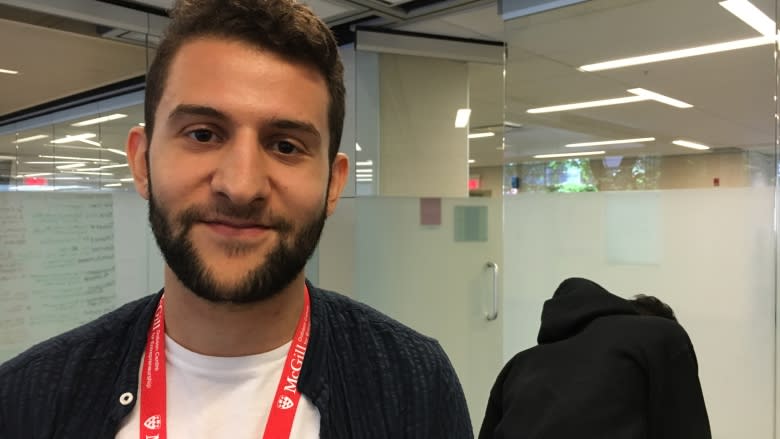Montreal dentist worries partial U.S. travel ban will stop cross-border work
The approval of a limited version of U.S. President Donald Trump's travel ban by the U.S. Supreme Court Monday was almost too cruel to be true for McGill University researcher Dr. Ashwaq Al-Hashedi.
The Yemeni citizen had just found out an hour before that a product she's been developing for the last few years had been selected for demonstration in the United States.
The dentist and entrepreneur says going to the U.S. is critical for spreading awareness of her new dental implant-cleaning technology among the industry's big players, and now she's not sure she can go.
"I feel angry, upset, I'm really shocked," Al-Hashedi told CBC Montreal's Daybreak.
"We're hard workers — why do we have to be blocked, or banned?"
Trump's ban on travel affects people from six predominantly Muslim countries — Iran, Libya, Somalia, Sudan, Syria and Yemen.
People from those countries would need to show that they have a close relationship with a person or entity in the U.S. in order to enter the country.
Bernie Derible, a spokesperson for federal Immigration Minister Ahmed Hussen, said Monday that Canadian permanent residents from the six designated countries who have valid resident cards and U.S. visas, and are deemed eligible by U.S. border authorities to enter the U.S., would not be denied entry.
Al-Hashedi said her application for permanent residency was approved two weeks ago.
Confusion reigns
Still, she worries her permanent residency may not be recognized and she isn't sure how to prove close ties if she has to — she has cousins in the U.S. but no documentation to prove they are related.
And she's not sure if her fledgling business would be recognized.
"We just started — we just incorporated our company in April," she said. "This would have been my first business trip."
She's the CEO of her company, she said, and she needs to be there. Her product was selected for demonstration at events in New York, Boston and San Francisco.
Limiting growth
Maher Ayari is the program manager at the McGill X-1 Accelerator, where Al-Hashedi is participating in a 10-week development program.
The program helps the fledgling businesses participate in demo days in Boston, San Francisco and New York.
"The U.S. has a lot of resources when it comes to entrepreneurship. Here in Canada, we're still learning a lot from them," said Ayari. "[The travel ban] is obviously going to limit the growth capacity of our startups ... not being able to bring those startups down to the U.S. is definitely going to be hurtful for their business."
In an interview with Daybreak, Concordia University professor Graham Dodds, a political scientist who studies executive orders, said the exemptions are potentially significant.
Dodds added it's important to note that Trump's executive order is not a permanent ban, but one that's meant to expire in three to four months — meaning it could expire before the Supreme Court rules on it. The justices will start to hear full arguments in the case in October.
Unclear how ban will be applied
U.S. State Department spokesperson Heather Nauert said it hasn't been decided how the ban will be implemented.
"We will keep those travelling to the United States and partners in the travel industry informed as we implement the order in a professional, organized, and timely way," she said in a news release issued Monday.
The Canadian government is advising all people planning travel to the U.S. to verify admission requirements ahead of time.



